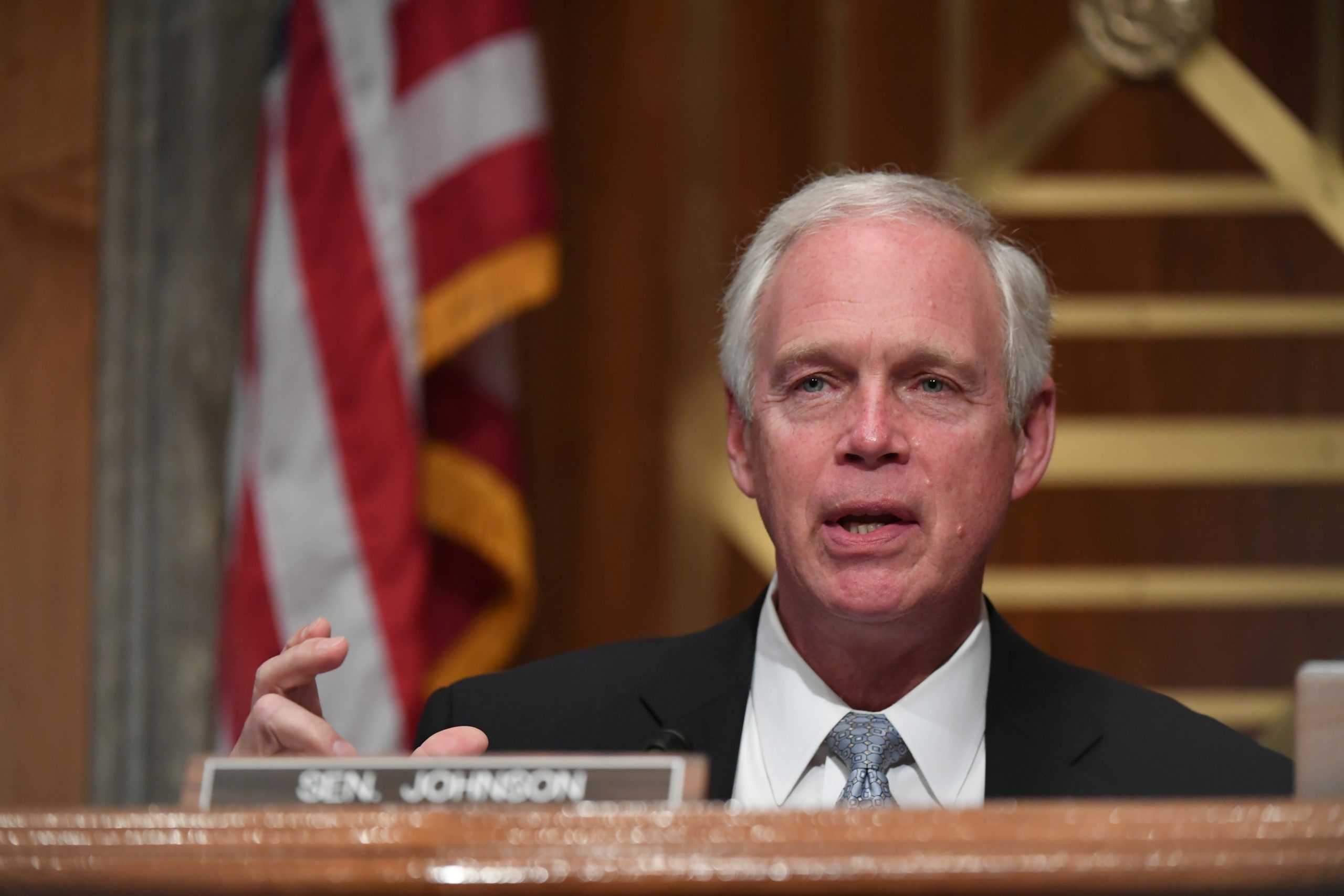Big Tech’s draconian censorship of any information violating the COVID-19 orthodoxy strikes again after YouTube banned Sen. Ron Johnson from uploading videos to its platform for seven days.
The development, reported by Fox News on June 11, comes after Johnson made “controversial” remarks advocating for research into early treatments for COVID-19, treatments that would include hydroxychloroquine and the lesser-known ivermectin.
YouTube removed a video of one of Johnson’s speeches before restricting him from uploading to the platform for one week, Fox reported.
His offense? Saying Americans deserve in-depth, professional research into inexpensive, on-the-market treatment options for COVID-19.
Johnson spoke out against the Trump and Biden administrations for “not only ignoring but working against robust research [on] the use of cheap, generic drugs to be repurposed for early treatment of COVID,” according to The Federalist’s Mollie Hemingway.
“I thought it was brilliant the way the Trump administration squeezed all of the economic efficiencies out of producing the vaccine, but I think we’re still going to need early treatments,” he said in the censored video, Hemingway reported.
Johnson’s allegedly controversial stance questioned why government bureaucracies and the World Health Organization so vehemently reject studying already existing drugs in favor of funding and developing new treatments.
It’s a question we’ve all asked at some point, right?
According to Hemingway, Johnson reiterated one testimonial from a hearing YouTube previously banned from its platform, discussing “the four pillars of pandemic response,” which include “prevention of the spread of the virus, early treatment, treatment in the hospital and vaccines.”
“It always baffled me that there was such a concerted effort to deny the American public the type of robust exploration research into early treatment early in this pandemic,” Johnson said, according to Hemingway.
He also mentioned the two on-the-market drugs most publicly debated for COVID-19 treatment — hydroxychloroquine and ivermectin — noting that both drugs are “incredibly safe” options to explore.
Both drugs have been authorized for decades for the treatment of various ailments from lupus to scabies, Hemingway noted.
Still, reluctance to adopt either drug as a potential treatment option still lingers.
Hemingway reported that the National Institutes of Health currently recommends against the use of hydroxychloroquine for COVID-19 treatment although the agency claims the drug does no harm, but reaps no benefits for infected patients.
But the NIH’s stance on ivermectin has shifted a little, going from denouncing its use to taking a neutral stance, Hemingway wrote.
Despite pushbacks against notions that these drugs could help treat the novel coronavirus in any way, some research tells a different story.
“Most pharmaceutical companies and countries funding research aren’t evaluating the two drugs for robust study,” Hemingway wrote.
The piece went on to note two studies awaiting peer review — one regarding multi-drug treatment (which included hydroxychloroquine) that yielded positive results.
The other was a similar study conducted on ivermectin sponsored by Argentina’s Ministry of Health.
Why aren’t we afforded the opportunity to not only hear more about these studies, but also be allowed to discuss each drug’s potential benefits?
Johnson posed a similar question and YouTube slapped him with a ban, citing “medical misinformation” that goes against the COVID orthodoxy, Fox reported.
This isn’t the only time “early treatment” discussions have been stricken from the platform, however.
In a February commentary piece Johnson published in The Wall Street Journal, the Wisconsin senator wrote that YouTube had already moved to “cancel” the U.S. Senate by removing two videos from a Dec. 8 Committee on Homeland Security and Governmental Affairs discussing early treatment options for COVID-19.
Johnson stated that one of these videos was a “30-minute summary” of the hearing while the other documented the opening statement given by critical-care specialist Pierre Kory.
“Dr. Kory is part of a world-renowned group of physicians who developed a groundbreaking use of corticosteroids to treat hospitalized COVID patients,” Johnson wrote. “His testimony at a May Senate hearing helped doctors rethink treatment protocols and saved lives.”
But his studies into the ivermectin’s effectiveness in treating COVID-19 have been less-than-enthusiastically received.
Kory offered insight into ivermectin’s effectiveness, citing the Argentinian study in which none of the 800 health care workers who received the medication contracted the virus while 58 percent of the 400 who didn’t receive the drug did contract COVID-19, Johnson wrote.
YouTube has proven so adamant about preventing free COVID discourse that the Big Tech giant would rather its users resort to the same narrow-mindedness plaguing its censorship standards.
Open discussion, research and critical thinking are three elements that allow medicine to flourish.
We can wonder why Big Tech platforms remain adamant to prevent free discourse and we can wonder why government officials remain adamant to do the same.
Johnson offered a non-conformist voice of reason on the issue.
But non-conformists have no place in a draconian society.
This article appeared originally on The Western Journal.
























